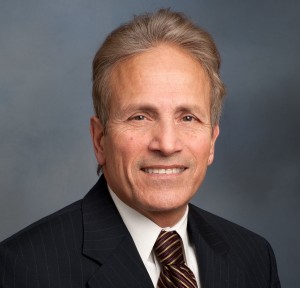
 George Spadoro is the previous mayor of Edison, New Jersey and a former state legislator. He is famous throughout the country. He received national attention early in his tenure for his skills dealing with the big gas explosion at Edison. The explosion made 1500 people displaced and 100 people homeless. Also during his three terms as mayor, he worked on post-9/11 security issues, the anthrax attack on the city post office, and other security issues. After 12 years in office, Spadoro has emerged as a trusted figure and expert in city governance. Spadoro now offers insight into another pressing issue – managing police interactions with Millennials. This interview was conducted because it now seems almost impossible to turn on the news or go online without seeing videos of cops using unnecessary force.
George Spadoro is the previous mayor of Edison, New Jersey and a former state legislator. He is famous throughout the country. He received national attention early in his tenure for his skills dealing with the big gas explosion at Edison. The explosion made 1500 people displaced and 100 people homeless. Also during his three terms as mayor, he worked on post-9/11 security issues, the anthrax attack on the city post office, and other security issues. After 12 years in office, Spadoro has emerged as a trusted figure and expert in city governance. Spadoro now offers insight into another pressing issue – managing police interactions with Millennials. This interview was conducted because it now seems almost impossible to turn on the news or go online without seeing videos of cops using unnecessary force.
Social: What bothers you most about videos involving police interactions with residents in cities like Baltimore, Chicago, Charleston and elsewhere?
Spadoro: It’s hard for me to fathom the level of neglect flowing into the system. This is a direct failure on the part of the government and the police to properly train and supervise. Being a police officer is a really challenging job. Your life is at stake every day. You are faced daily with aggressive situations and abnormal testing which, if ignored, can cause deep anxiety while performing your duties. I believe it’s the responsibility of officers to revise the current strategy where many of these officers are screened for qualification.
Social: How, as a former mayor, can a mayor control what happens on the streets between the police and the citizens of his city?
Spadoro: As mentioned, I believe stronger psychiatric and sensitivity training needs to be implemented as an ongoing aspect of work. When I say “sensitivity” I mean the cultural sensitivity that enables people to connect and determine what respect is depending on the city’s diversified demographics. These men and ladies carry guns and while we may not have the ability to control every individual, the formula for respect can easily be simplified – which is why we need better conditioning to stay out of trouble.
Social: Why do you think Millennials are so disappointed by what they see? Do you think there’s a difference between Millennials’ behavior towards the police compared to previous generations? Are they demanding more accountability?
Spadoro: I believe right now Millennials most likely have so much more passion and support for supporting the open-minded revolution. Older adults may tend to give officers the benefit of the doubt rather than the other way around. They may approach each case with a more in-depth way of thinking before instantly assuming the worst. Each generation contains a segment that’s more responsible for establishment. You need that segment to challenge what they believe is right just like you need your other half to sustain potential chaos. There is no wrong attitude, but tolerance, mutual respect and understanding are the keys.
Social: Have you faced any controversy involving members of your police force?
Spadoro: In a highly held position, you’ll all the time be confronted with internal affairs and corruption. The police will all the time be targeted just as the authorities can abuse law abiding individuals. They are all violations. By extending a gradual and corrective program for the department, I believe the rep is going in the right direction.
Social: Does it bother you particularly to see young African Americans treated differently by white cops?
Spadoro: I do not think cops should ignore profiling totally, it can be an effective tool to use when serving and protecting. But that’s no justification for outright discrimination either! There is a really fine line between society’s statistics and excess. This is why I can not help but reiterate how psychiatric and sensitivity training needs to be enforced regularly to make sure officers do not develop cultural biases towards different demographics. Screening and monitoring should be a very important and core part of the foundation of any police department.
Social: What advice can you give Millennials in their interactions with law enforcement?
Spadoro: I believe people typically need to respect the entire relationship. Whether or not you believe you have done something wrong, or feel you have been treated unfairly or unfairly, at that point it is crucial to follow procedure. More often than not, cops do their job and follow basic protocol. I’m not telling you not to question authority if you feel like you have been wronged, but you are at a disadvantage right now. File a complaint against the suitable officer and it is going to be reviewed. It is all the time best to lead on the idea that officers are highly trained and doing the right thing – not the other way around. This will benefit both parties in the long run.
Social: With the emergence of more video and possibly body cameras, do you see things getting better or worse?
Spadoro: In the end, video is a good thing. However, there still needs to be a balance of levels of responsibility. Videos are editable and the media is a big culprit that creates sensationalism about when and how these videos get released. Obviously, videos will help sustain the intensified behavior and/or reaction; however, videos can even convey fear or concern. Police officers may become hesitant to carry out their duties or be more careful to avoid impacting individuals. They start to second-guess their actions or feel the need to prove rather than protect.











